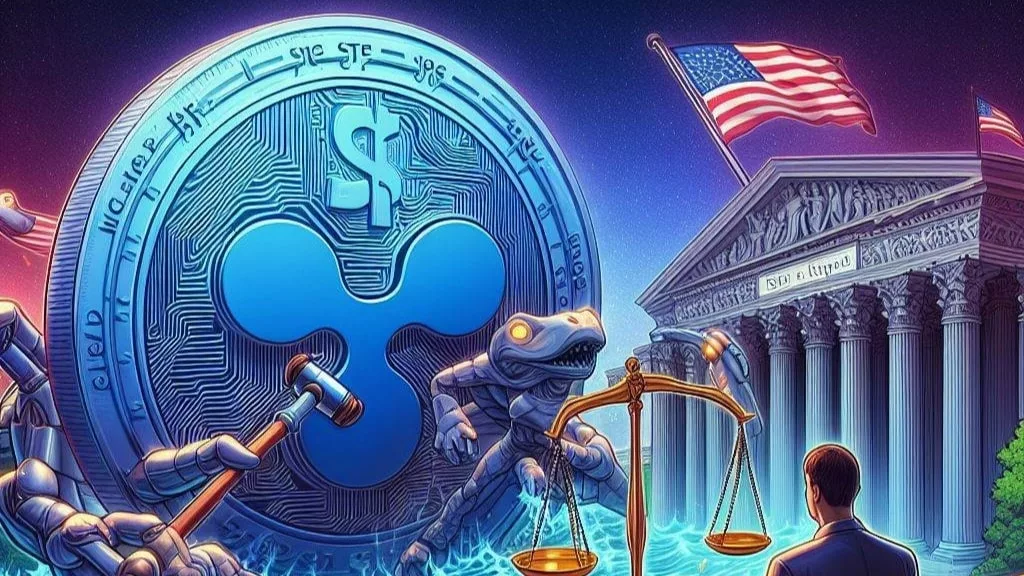
Prelude: The Genesis of the SEC vs Ripple Clash The origins of the SEC’s legal crusade against Ripple can be traced back to its inception in 2012. Ripple, a San Francisco-based fintech company, introduced the XRP digital asset as a means of facilitating cross-border payments and remittances. Unlike Bitcoin and Ethereum, which were decentralized cryptocurrencies, XRP was issued and managed by Ripple, leading to questions about its regulatory status.
As Ripple’s prominence in the cryptocurrency ecosystem grew, so did scrutiny from regulatory bodies, particularly the SEC. In December 2020, the SEC dropped a legal bombshell, filing a lawsuit against Ripple and two of its executives, Brad Garling house and Chris Larsen. The SEC alleged that Ripple had conducted an unregistered securities offering by selling XRP tokens to investors, raising over $1.3 billion in the process.
The SEC’s Allegations: Unregistered Securities and Investor Harm The crux of the SEC’s case against Ripple revolves around the classification of XRP as a security under U.S. securities laws. According to the SEC, Ripple’s sale of XRP constituted an unregistered securities offering, as the company failed to comply with registration requirements mandated by the Securities Act of 1933. The SEC argued that Ripple’s actions violated investor protection laws and misled investors about the nature of XRP.
Central to the SEC’s argument is the contention that Ripple marketed and sold XRP to investors with the expectation of profits, thus meeting the definition of an investment contract. The SEC pointed to Ripple’s promotional efforts, including statements by company executives and marketing materials, which allegedly created the impression that XRP’s value would increase over time, leading to substantial returns for investors.
Ripple’s Defense: XRP as a Digital Asset, Not a Security In response to the SEC’s allegations, Ripple mounted a vigorous defense, challenging the regulatory agency’s characterization of XRP as a security. Ripple argued that XRP is a digital asset used primarily for facilitating transactions on its network, akin to Bitcoin and Ethereum, and should not be subject to securities regulation.
Ripple contended that the Howey Test, the legal framework used to determine whether an instrument qualifies as an investment contract and thus a security, did not apply to XRP. Ripple asserted that XRP holders did not have a reasonable expectation of profits from their investment in XRP, as any potential gains were contingent on the efforts of Ripple and not the collective efforts of XRP holders.
Legal Maneuverings: The Battle in the Court room The legal battle between Ripple and the SEC played out in the U.S. District Court for the Southern District of New York, where both parties presented their arguments before Judge Analisa Torres. The case garnered widespread attention from the cryptocurrency community and beyond, with stakeholders eagerly awaiting the court’s ruling on the pivotal issue of XRP’s regulatory status.
In a significant development, Judge Torres delivered a split decision on the matter, providing a nuanced interpretation of XRP’s classification. The court ruled that while XRP could be considered a security when sold by Ripple to institutional investors, it did not necessarily retain that classification when traded on cryptocurrency exchanges among the general public.
The court’s decision hinged on the distinction between Ripple’s direct sales of XRP to institutional investors, which were deemed securities offerings, and the subsequent trading of XRP on secondary markets, where the tokens assumed the characteristics of a digital currency. Judge Torres emphasized the role of Ripple’s marketing and targeting strategies in shaping the regulatory status of XRP transactions.
Ripple’s Appeal and Ongoing Legal Wrangling Following the court’s decision, Ripple announced its intention to appeal the ruling, signaling its determination to challenge the SEC’s allegations and seek vindication in higher courts. Ripple’s legal team expressed confidence in their defense and reiterated their belief in XRP’s status as a digital asset exempt from securities regulation.
In parallel, the SEC continued to pursue enforcement actions against Ripple and its executives, intensifying regulatory pressure on the company and its operations. The outcome of the legal proceedings remains uncertain, with stakeholders eagerly awaiting further developments and potential resolutions to the protracted legal dispute.
Implications for Cryptocurrency Regulation and Market Dynamics The SEC vs Ripple lawsuit has far-reaching implications for the broader cryptocurrency ecosystem and regulatory landscape. The case has highlighted the challenges inherent in applying traditional securities laws to emerging digital assets and underscored the need for clarity and guidance from regulatory authorities.
A favorable ruling for the SEC could set a precedent for stricter enforcement of securities laws in the cryptocurrency space, potentially leading to increased regulatory scrutiny and compliance requirements for cryptocurrency projects. This could have profound implications for token issuers, exchanges, and other market participants, reshaping the dynamics of the digital asset market.
Conversely, a victory for Ripple could provide clarity and certainty for market participants, alleviating concerns about regulatory overreach and fostering innovation and investment in the cryptocurrency space. A clear legal framework delineating the regulatory status of digital assets could pave the way for greater institutional adoption and mainstream acceptance of cryptocurrencies.
Conclusion: Navigating the Uncertain Terrain of Cryptocurrency Regulation As the SEC vs Ripple legal saga unfolds, the cryptocurrency community remains on edge, grappling with the implications of the landmark case for the future of digital assets. The outcome of the lawsuit is poised to shape the trajectory of cryptocurrency regulation in the United States and beyond, with ripple effects reverberating throughout the global financial system.
Amidst the legal wrangling and regulatory uncertainty, stakeholders are urged to exercise caution and vigilance, navigating the evolving terrain of cryptocurrency regulation with prudence and foresight. Whether Ripple emerges victorious or faces regulatory repercussions, the SEC vs Ripple lawsuit serves as a stark reminder of the challenges and opportunities inherent in the dynamic world of digital finance.


Get the latest Crypto & Blockchain News in your inbox.